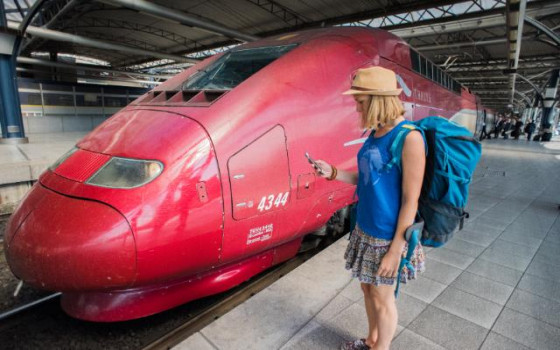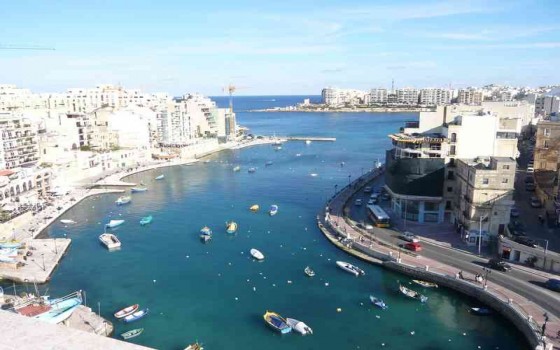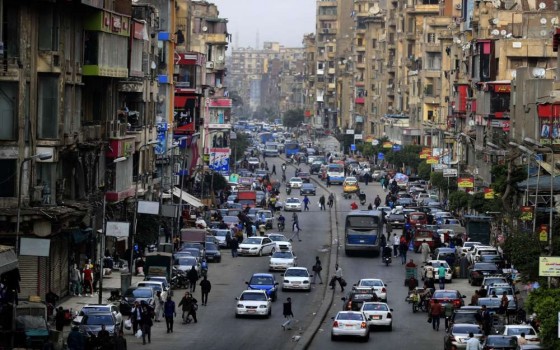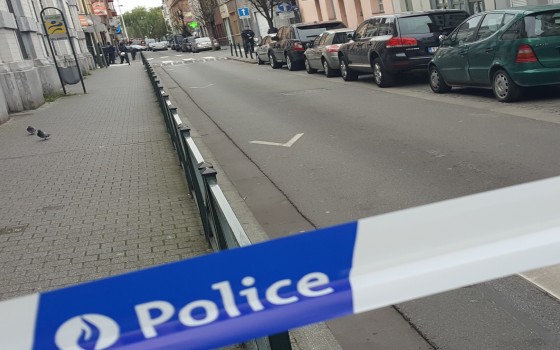
The European Commission in Brussels: strengthening the Schengen area with the full participation of three countries, namely Bulgaria, Romania and Croatia

- Europe and Arabs
- Wednesday , 16 November 2022 16:31 PM GMT
Brussels: Europe and the Arabs
The European Commission in Brussels on Wednesday called on the Council of the European Union to take the necessary decisions without further delay to allow Bulgaria, Romania and Croatia full participation in the Schengen area. In a communiqué adopted today, the Commission assesses the strong track record of the three member states in applying the Schengen rules.
Over the years, these member states have contributed significantly to the smooth functioning of the Schengen Area, including during the pandemic period and more recently when faced with the unprecedented consequences of the war in Ukraine, a statement from the Commission said. While the three countries are already partially bound by the Schengen rules, internal border controls have not been lifted with these member states, and so they do not enjoy the full benefits that come with being part of the Schengen Area without internal border controls. Becoming a full part of the Schengen Area is a requirement of these member states and therefore they should be allowed to do so given that they fulfill the conditions.
An expanded Schengen area without internal border controls will make Europe safer - by strengthening protection of our common external borders and effective police cooperation - more prosperous - by eliminating time lost at borders and facilitating people and business contacts - and more attractive - by expanding the largest common area in Europe A world without internal border controls.
Bulgaria has established a strong border administration with effective border control and regular border checks. The priority is given to combating cross-border crime through international police cooperation, including with Europol. Well-established Schengen information system. Bulgaria has also demonstrated that it has the necessary structures in place to ensure respect for fundamental rights, guarantee access to international protection, and respect the principle of non-refoulement.
Romania has strong and high-quality border management, including border control, regular border checks and international police cooperation. Fighting illegal immigration and human trafficking is a priority for Romania, where Romania is very active. Well-established Schengen information system. In terms of respect for fundamental rights, Romania has effective structures in place to ensure access to international protection that respect the principle of non-refoulement.
Bulgaria and Romania successfully completed the Schengen assessment process in 2011. The completion of the assessment process was acknowledged by the Council in two separate Council conclusions, but the Council has not taken any decision on lifting internal borders for over 11 years. In view of the time that has elapsed since 2011, as well as with the aim of enhancing mutual trust and in recognition of the development of the Schengen rules since 2011, Bulgaria and Romania made a joint declaration in the Council in March 2022. Bulgaria and Romania invited a group of experts on a voluntary basis coordinated by the Commission to consider the application of the latest developments of the Schengen rules .
This voluntary fact-finding mission, which took place in October 2022, confirmed that Bulgaria and Romania not only continued to apply the new rules and tools, but also significantly promoted the comprehensive implementation of the Schengen architecture in all its dimensions. Moreover, these two countries have proven that they have a proven track record in implementing the Schengen rules.
In December 2021, the Council confirmed that Croatia had met the conditions required to join the Schengen Area without internal border controls. The assessment took place from 2016 to 2020. It included a successful targeted verification visit in 2020 to verify the implementation of procedures in external border management. Croatia has made significant efforts to ensure that external border controls comply with fundamental rights obligations. In particular, Croatia established an independent monitoring mechanism in June 2021, which provides for independent human rights monitoring of border processes involving migrants and asylum seekers. The mechanism directly engages Croatian stakeholders and is guided by an independent advisory board. Croatia was the first Member State to establish such a mechanism. A new agreement to extend and strengthen the Independent Monitoring Mechanism was signed on November 4, 2022. This new agreement fully reflects all recommendations issued by the Advisory Board on October 27, 2022.
On the next step, the European statement said that under the leadership of the Czech presidency, on December 8, the Justice and Home Affairs Council will vote on the full participation of Bulgaria, Romania and Croatia in the Schengen area without internal border controls.
The Schengen Area is the largest free travel area in the world, with 22 participating EU countries (Austria, Belgium, Denmark, France, Germany, Greece, Italy, Luxembourg, Netherlands, Portugal, Spain, Sweden, Czech Republic, Estonia, Hungary, Latvia, Lithuania, Malta, Poland, Slovakia and Slovenia), as well as 4 non-EU countries (Norway, Iceland, Switzerland and Liechtenstein). Ireland retains the option of opting out of the deregulation of internal border controls.
Countries wishing to join the Schengen Area must undergo a series of Schengen assessments to confirm whether they meet the necessary conditions for applying the Schengen rules. Once the Schengen Assessment Missions have confirmed a Member State's willingness to join the area without internal border controls, unanimous approval is required from all other Member States applying the Schengen Acquisitions in full. The European Parliament must also give its approval.
On November 10, 2022, the European Parliament gave a positive opinion on the Council's draft resolution on the full implementation of the Schengen agreements in Croatia. On October 18, 2022, the European Parliament adopted a resolution calling on the Council to allow Romania and Bulgaria to join the Schengen Area.












No Comments Found